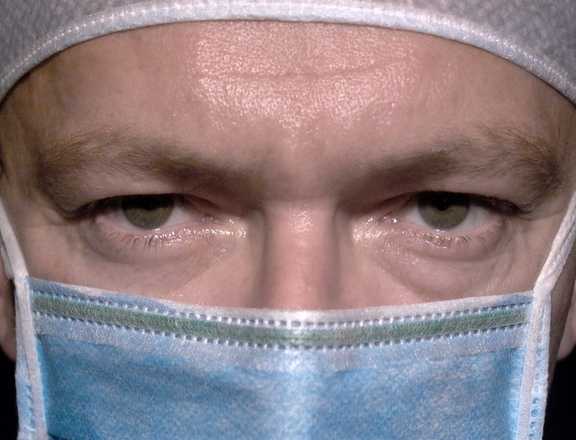 DES MOINES, Iowa — The Iowa Supreme Court has unanimously upheld a lower court ruling that determined the State must allow “sex change” operations to be covered under Medicaid.
DES MOINES, Iowa — The Iowa Supreme Court has unanimously upheld a lower court ruling that determined the State must allow “sex change” operations to be covered under Medicaid.
“[T]he history behind the rule supports our holding that the rule’s express bar on Medicaid coverage for gender-affirming surgical procedures discriminates against transgender Medicaid recipients in Iowa under the ICRA (Iowa Civil Rights Act),” wrote Justice Susan Christensen on behalf of the panel.
“After the DHS amended the rule to bar Medicaid coverage for gender-affirming surgery, the legislature specifically made it clear that individuals cannot be discriminated against on the basis of gender identity under the ICRA,” she said.
“Given our holding that rule 441—78.1(4)’s exclusion of Medicaid coverage for gender-affirming surgery violates the ICRA as amended by the legislature in 2007, we need not address the other issues raised on appeal.”
Read the decision in full here.
As previously reported, two men, who go by the names Carol Ann Beal and EerieAnna Good, had sued the Iowa Department of Human Services (DHS) in 2017 after their doctors were informed that Medicaid would not cover procedures to remove their male reproductive organs.
Under the Iowa Administrative Code, DHS prohibits coverage of cosmetic, reconstructive or plastic surgeries “primarily for psychological reasons or as a result of the aging process” or “for the purpose of sex reassignment.”
Beal and Good, with the aid of the American Civil Liberties Union (ACLU) and the testimony of their doctors, argued that their surgeries were “medically necessary,” advising the court that they struggle with depression and anxiety due to their gender dysphoria.
“This surgery is not just something that I want. It’s something that I very much need to resolve the depression and anxiety I face because my outside fails to match who I know I am: a woman,” Good said in a statement at the time.
The ACLU also argued that the denial violated the Iowa Civil Rights Act and the Iowa Constitution, because “the same or substantially equivalent treatments” would be allowed for those who don’t have gender dysphoria. It cited the example of a mastectomy.
Last June, Gamble sided with the plaintiffs, stating that the DHS did not prove that its exclusion served a substantial government interest. He also denied a request from DHS to create criteria to determine whether or not to approve coverage for gender dysphoria-related surgeries in the future.
“The court is … perplexed by this request,” Chief District Judge Arthur Gamble stated. “DHS does not explain why the medical necessity of requests for sex reassignment surgeries could not simply be evaluated under the same criteria as other requested surgeries or treatment of non-transgender individuals.”
He therefore ordered the reversal of DHS’ denial of coverage for Beal and Good’s operations, and declared the state regulation to be in violation of the Iowa Constitution.
“[T]he language of Iowa Administrative Code rule 441-78.1(4) pertaining to the exclusion of coverage for sex reassignment surgery in connection to the treatment of transsexualism should be and is hereby held to violate the Iowa Civil Rights Act and the Equal Protection Clause of the Iowa Constitution,” Gamble wrote.
“The language of the regulation excluding coverage for sex reassignment surgery for transsexualism shall be stricken from the regulation and the remaining language must be interpreted and applied in a manner allowing transgender individuals coverage under Iowa Medicaid for medically necessary gender affirming surgery for the treatment of Gender Dysphoria,” he ordered.
On Friday, the Iowa Supreme Court upheld Good’s decision, stating that the exclusion of coverage violates the Iowa Civil Rights Act.
“In 2007, the Iowa legislature amended the ICRA to add ‘gender identity’ to the list of protected groups,” Christensen wrote. “The ICRA’s gender identity classification encompasses transgender individuals—especially those who have gender dysphoria—because discrimination against these individuals is based on the nonconformity between their gender identity and biological sex.”
“This prohibition against denying coverage for Good’s and Beal’s gender-affirming surgical procedures extends to the director and staff of the DHS, as well as its agents, the MCOs.”
While Beal and Good cheered the decision, stating that the operations “save lives” since “[t]ransgender people are at such risk for suicide,” others said that cutting people’s bodies is not the answer to the pain and confusion they feel.
“We grieve to see measures that encourage—and now compel taxpayers to fund—others seeking fulfillment outside of God’s design,” Drew Zahn of The Family Leader told the Des Moines Register.
As previously reported, Walt Heyer, a man who identified as a woman for eight years until he became regenerated by the Spirit of God, similarly wrote an article in 2017 remarking that allowing those with gender dysphoria to conform their bodies to their psychology does not solve the underlying problem.
“Too many U.S. medical practitioners direct all gender-distressed people toward the extreme measures of conforming the body to the mind, rather than exploring the psychological issues that lie beneath the feelings,” he stated. “Giving powerful hormones and recommending radical surgeries without screening for psychological issues first causes great harm to the patients and their families.”
“Many people who are regretful and suicidal followed to the letter the generally accepted treatment protocol of doctor-prescribed hormone therapy and genital surgery,” Heyer, who now helps those with sex-change regret, outlined. “It is not homophobic, transphobic, or bigoted to look at the causes of dissatisfaction and suicide among the transgender population. Rather, it is a caring, heartfelt way to prevent dissatisfaction and suicides.”
Become a Christian News Network Supporter...


